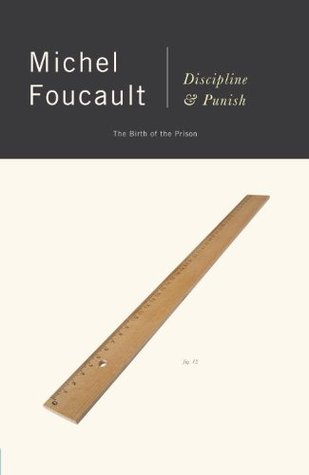More on this book
Community
Kindle Notes & Highlights
Read between
December 2 - December 10, 2020
From being an art of unbearable sensations punishment has become an economy of suspended rights.
The guillotine takes life almost without touching the body, just as prison deprives of liberty or a fine reduces wealth. It is intended to apply the law not so much to a real body capable of feeling pain as to a juridical subject, the possessor, among other rights, of the right to exist.
In France, the guillotine, that machine for the production of rapid and discreet deaths, represented a new ethic of legal death.
During the 150 or 200 years that Europe has been setting up its new penal systems, the judges have gradually, by means of a process that goes back very far indeed, taken to judging something other than crimes, namely, the ‘soul’ of the criminal.
One must calculate a penalty in terms not of the crime, but of its possible repetition. One must take into account not the past offence, but the future disorder. Things must be so arranged that the malefactor can have neither any desire to repeat his offence, nor any possibility of having imitators.
Nothing so weakens the machinery of the law than the hope of going unpunished; how could one establish in the minds of the public a strict link between the offence and a penalty if it were affected by a certain coefficient of improbability?
The silence of the law must not harbour the hope of impunity.
A secret punishment is a punishment half wasted.
Work must be the religion of the prisons. For a machine-society, purely mechanical means of reform are required’ (Faucher, 64; in England the ‘treadmill’ and the pump provided a disciplinary mechanization of the inmates, with no end product).
The wages of penal labour do not reward production; they function as a motive and measure of individual transformation: it is a legal fiction, since it does not represent the ‘free’ granting of labour power, but an artifice that is presumed to be effective in the techniques of correction.


